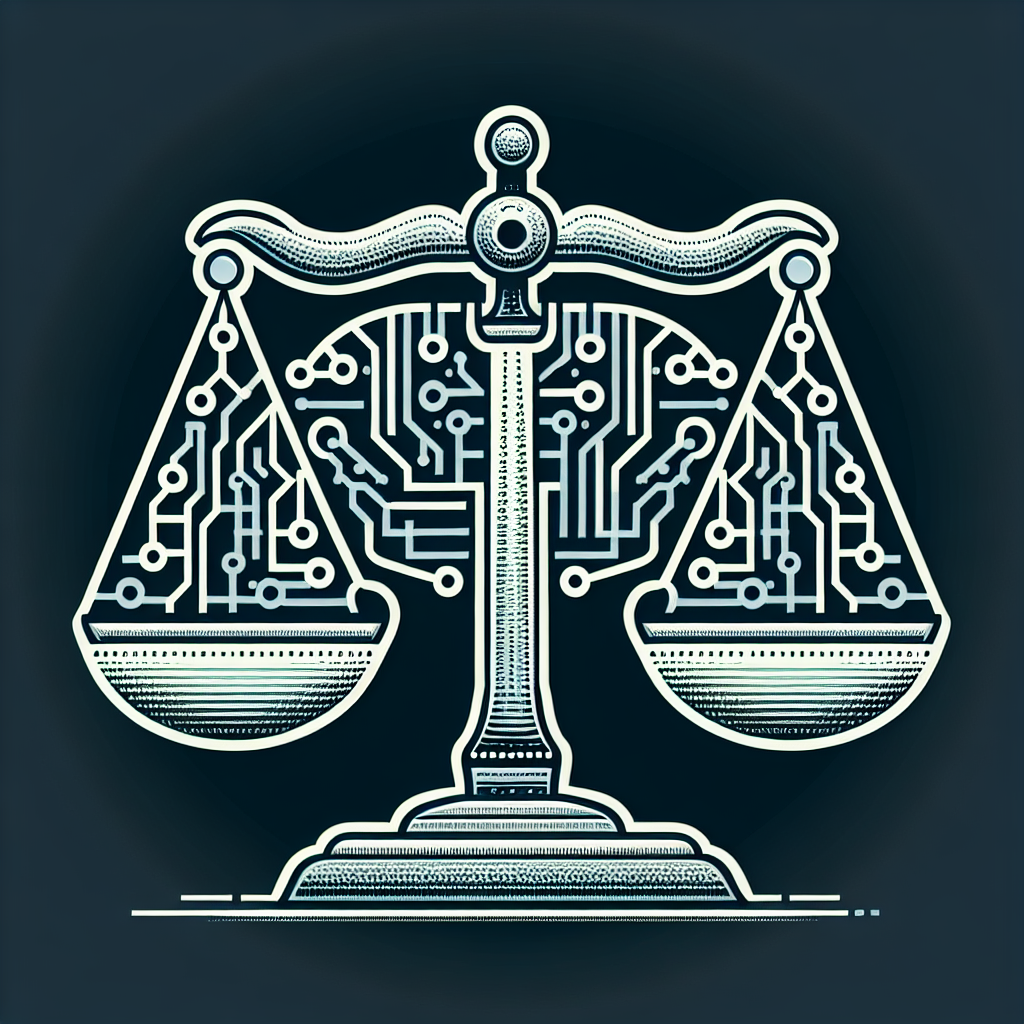Artificial Intelligence (AI) has been making significant strides in various industries, including the legal sector. One of the key applications of AI in the legal field is in predicting legal case outcomes and analyzing the factors that influence these outcomes. This technology has the potential to revolutionize the way legal professionals approach case management and decision-making.
The Role of AI in Legal Case Prediction
AI algorithms have the ability to process vast amounts of legal data, including case law, court rulings, and other legal documents, to identify patterns and trends that can help predict the likely outcome of a legal case. By analyzing past cases with similar characteristics, AI can provide lawyers and judges with valuable insights into how a particular case is likely to unfold.
AI can also be used to predict the potential risks and rewards of pursuing a legal case, allowing legal professionals to make more informed decisions about whether to take a case to court or pursue alternative dispute resolution methods. This can help save time and resources by avoiding costly and time-consuming legal battles that may not have a favorable outcome.
Furthermore, AI can assist in predicting the behavior of judges and juries, helping lawyers tailor their arguments and strategies to increase the chances of a successful outcome. By analyzing the language and tone of past judgments, AI algorithms can provide valuable insights into the factors that influence judicial decision-making.
Outcome Analysis
In addition to predicting legal case outcomes, AI can also be used to analyze the factors that influence these outcomes. By examining the characteristics of past cases and the decisions that were made, AI algorithms can identify the key variables that are most likely to impact the outcome of a legal case.
For example, AI can analyze the impact of different legal arguments, evidence, and legal precedents on case outcomes. By identifying the most influential factors, lawyers can better prepare their cases and increase the likelihood of a successful outcome.
AI can also be used to analyze the behavior of judges and juries in past cases, helping lawyers understand the factors that are most likely to sway their decisions. This can help lawyers tailor their arguments and strategies to appeal to the specific preferences and biases of decision-makers, increasing the chances of a favorable outcome.
Overall, AI can provide valuable insights into the legal landscape, helping lawyers and judges make more informed decisions and improve the efficiency and effectiveness of the legal system.
FAQs
1. How accurate are AI predictions of legal case outcomes?
AI predictions of legal case outcomes can be highly accurate, depending on the quality and quantity of data available for analysis. By analyzing vast amounts of legal data, AI algorithms can identify patterns and trends that may not be apparent to human analysts, increasing the accuracy of predictions.
2. Can AI replace human lawyers and judges?
While AI can assist lawyers and judges in making more informed decisions, it is unlikely to replace human professionals entirely. Legal decision-making involves complex moral, ethical, and emotional considerations that AI may not be able to fully replicate. However, AI can supplement human expertise and enhance the efficiency and effectiveness of the legal system.
3. How can lawyers and judges benefit from AI in legal case prediction?
Lawyers and judges can benefit from AI in legal case prediction by gaining valuable insights into the factors that influence case outcomes and judicial decision-making. By using AI to analyze past cases and identify trends and patterns, legal professionals can make more informed decisions and tailor their arguments and strategies to increase the chances of a successful outcome.
4. Are there any ethical concerns about using AI in legal case prediction?
There are ethical concerns about using AI in legal case prediction, particularly regarding transparency, accountability, and bias. AI algorithms may be opaque and difficult to interpret, raising questions about how decisions are made and the potential for bias in the data used for analysis. Legal professionals must be mindful of these concerns and ensure that AI is used ethically and responsibly.
In conclusion, AI has the potential to revolutionize the legal industry by providing valuable insights into legal case outcomes and the factors that influence them. By leveraging the power of AI algorithms, lawyers and judges can make more informed decisions, increase the efficiency of the legal system, and improve the overall quality of legal services. While there are ethical concerns to consider, the benefits of using AI in legal case prediction are clear, and its impact on the legal profession is likely to continue to grow in the coming years.

